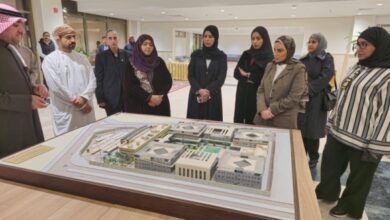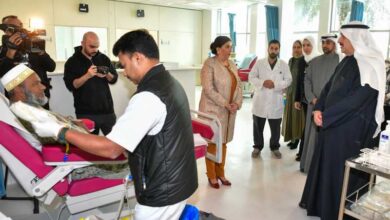Local Sudden surge in the number of rodents pose a health threat

Two academics have raised concerns regarding the escalating proliferation of rats in various areas of Kuwait. These rodents serve as carriers of diseases that may pose challenges in diagnosis within public clinics.
Simultaneously, there has been a surge in complaints about the burgeoning rat population, prompting calls for the development of a more efficient mechanism to address citizen complaints regarding their presence, reports Al-Rai daily.
Dr. Qais Majeed, a Biology Professor and the Head of the Science Department at the College of Basic Education, emphasized the peril associated with the spread of rats and the diseases they may introduce.
He highlighted a significant threat wherein these rodents infiltrate food stores, with their solid and liquid waste serving as vectors for diseases transmitted to consumables and subsequently to humans. In addition to the direct threat to human health, Majeed pointed out that these mice carry various types of worms that can induce diseases in poultry, cows, and livestock.
Majeed underscored the ecological imbalance caused by the excessive proliferation of mice, noting a decline in the population of insects and reptiles that constitute their natural prey.
He described the current rat infestation as approaching a phenomenon, where daily encounters with one or two mice in households have become commonplace. Attempts to communicate with relevant authorities regarding this issue have faced obstacles, resulting in delayed responses such as the installation of traps.
Dr. Sabah Al-Tarkait, a professor at the College of Health Sciences, echoed these concerns, labeling the widespread presence of rats and rodents as a major problem in residential and industrial areas.
She noted a sudden surge in rat populations lacks a clear explanation. Al-Tarkait emphasized that rats are carriers of serious bacterial diseases, with Weil’s disease being particularly challenging to diagnose in public clinics.
Highlighting the absence of an effective monitoring system for rat populations in Kuwait, Al-Tarkait acknowledged the close-knit nature of Kuwaiti society, suggesting that any increase in rat numbers would be swiftly noticed.
She identified areas with accumulated waste, ongoing construction, densely populated cities, and sewage drains as prime breeding grounds for rats.
Al-Tarkait urged citizens to vigilantly monitor their living spaces, especially areas where food is stored, and to employ mouse traps where feasible. Additionally, she stressed the importance of daily waste disposal as a preventive measure.











